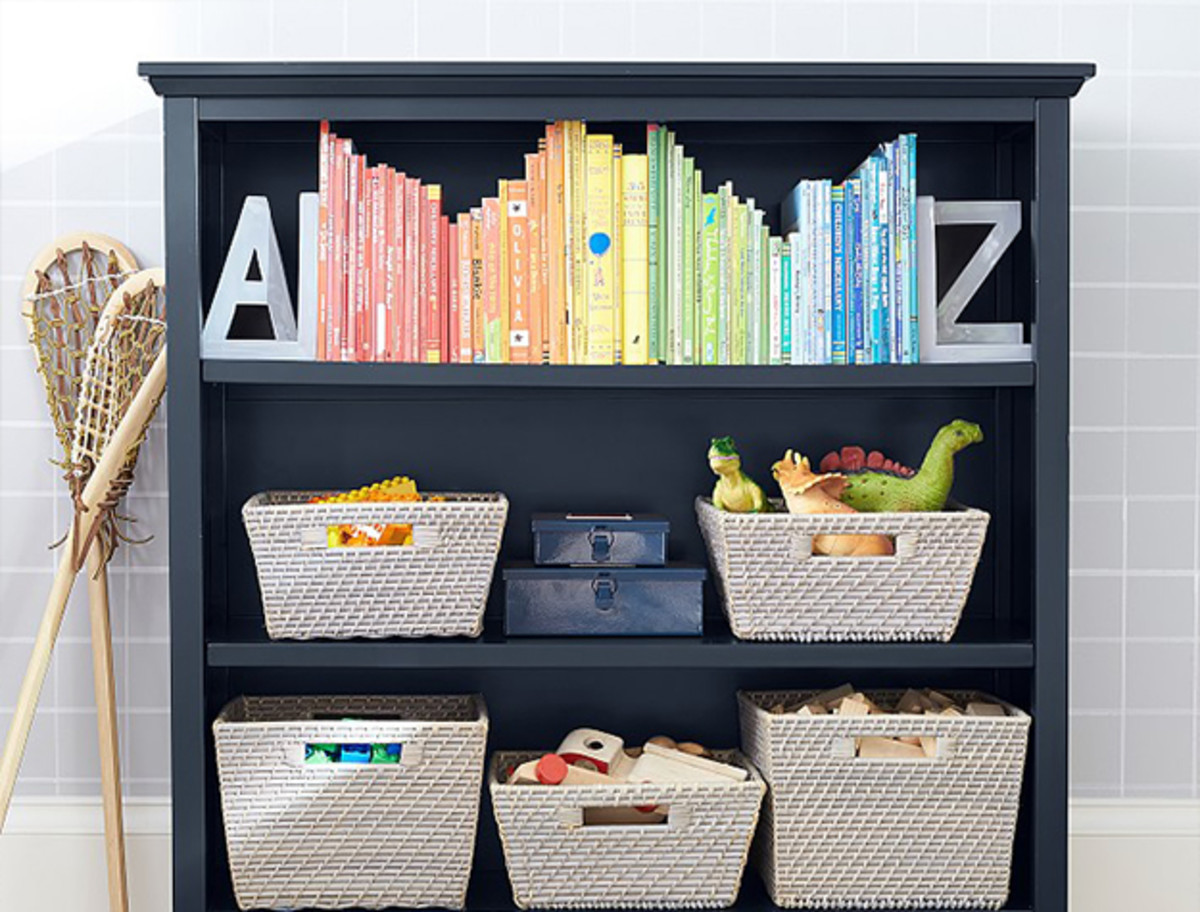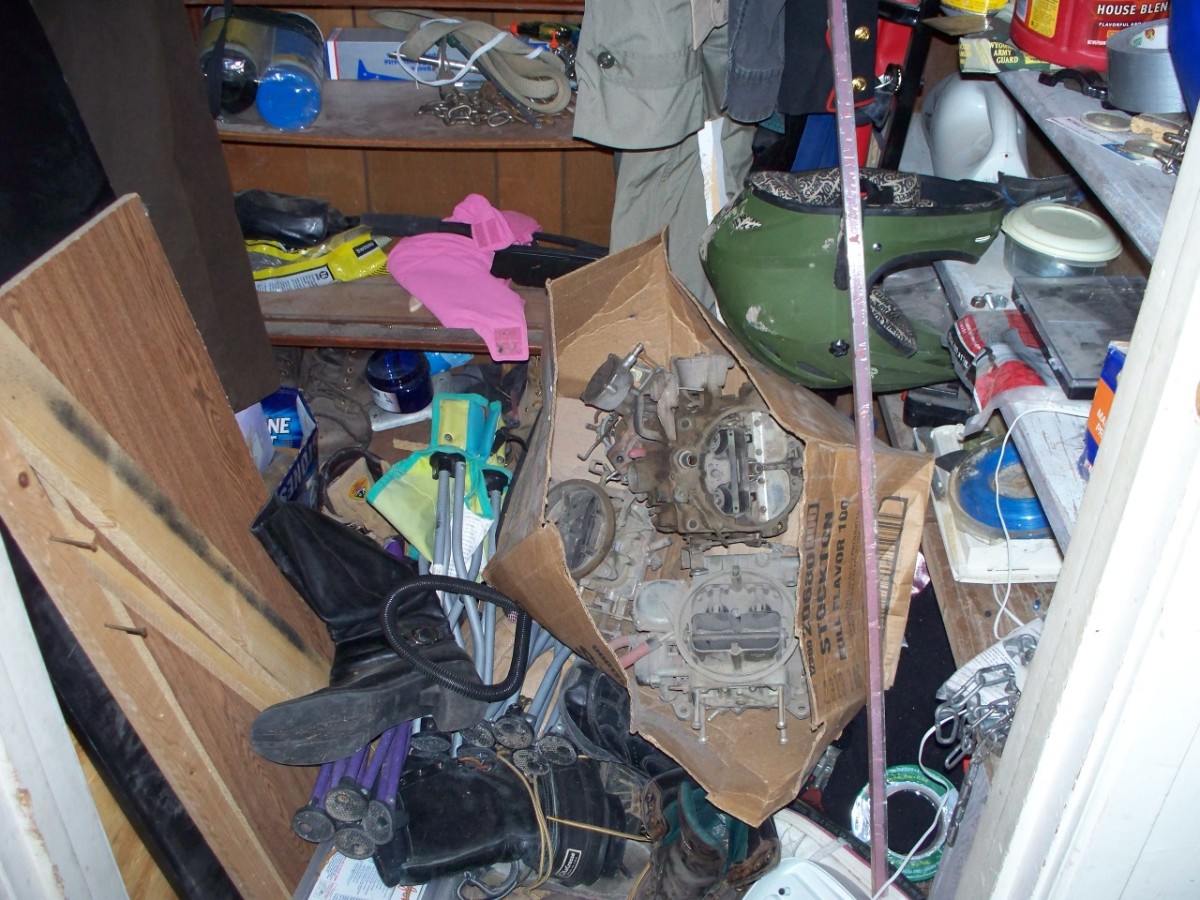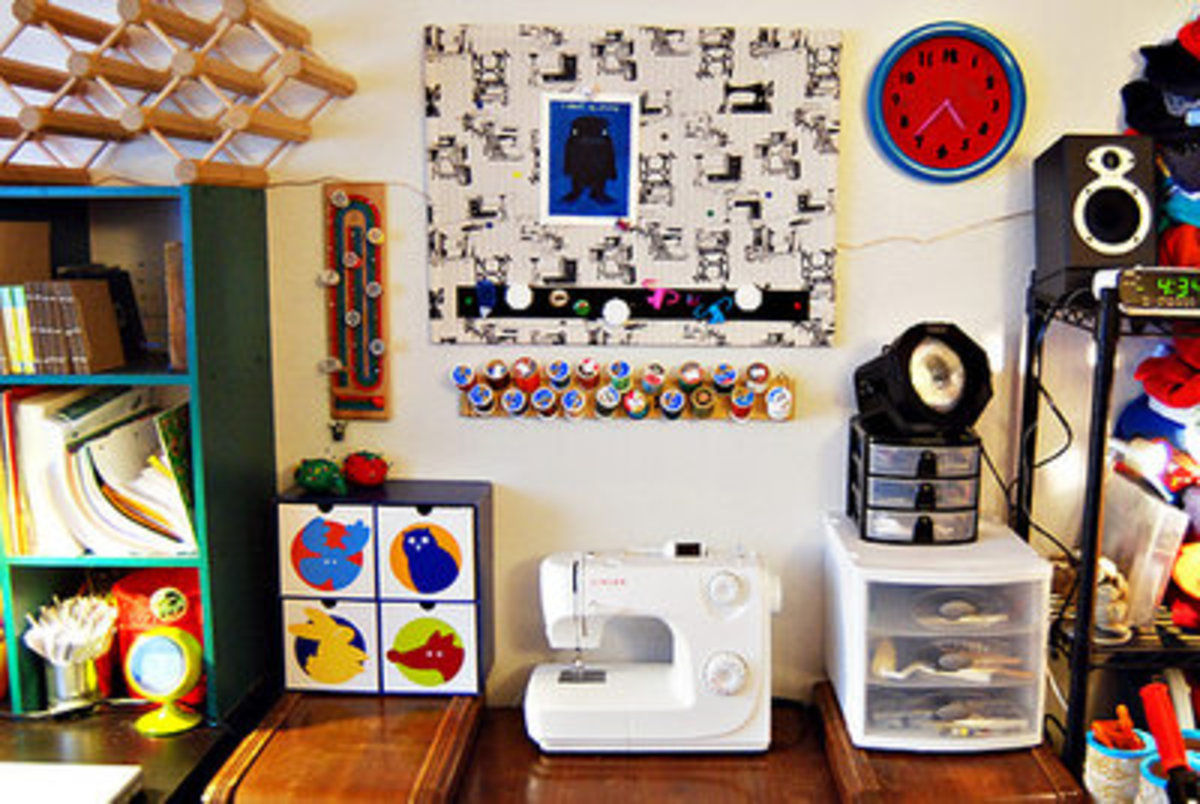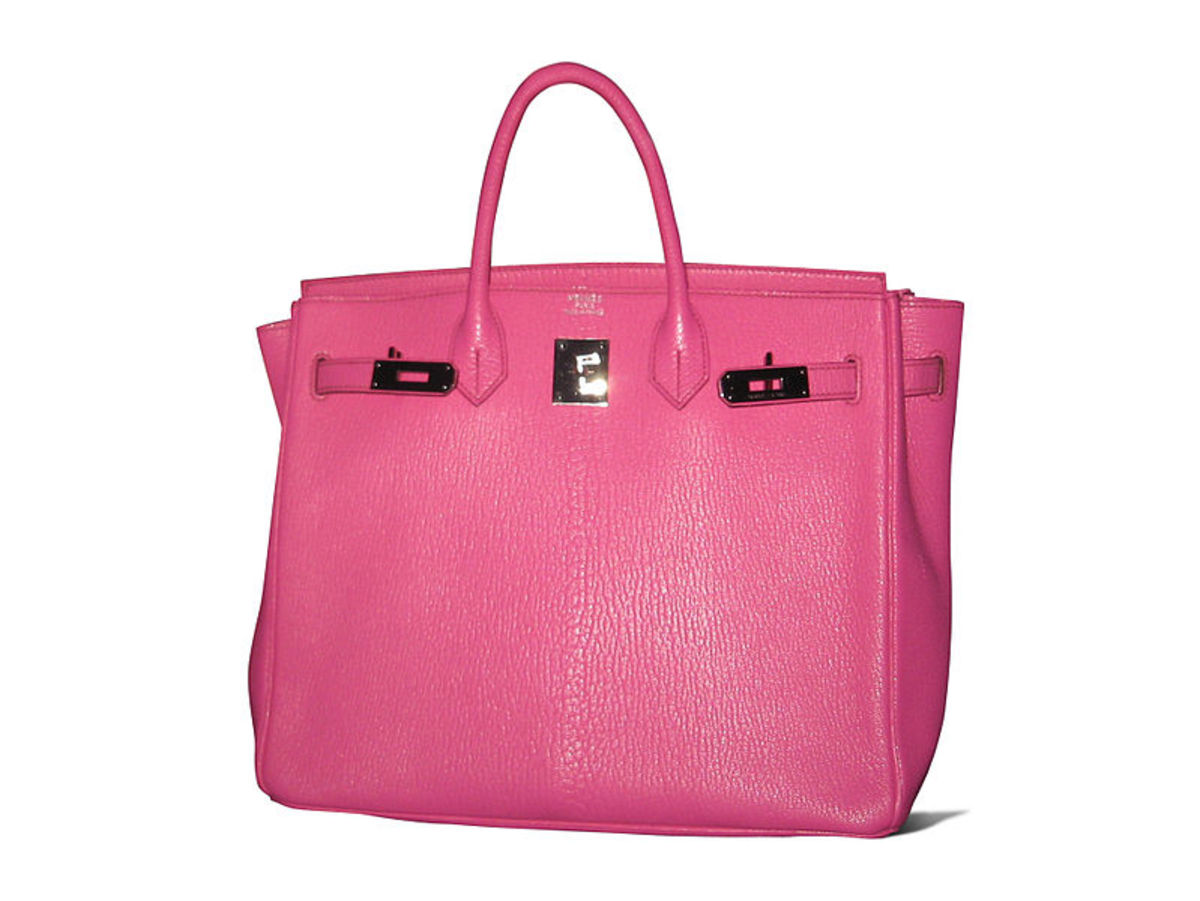10 Great Organization Tips
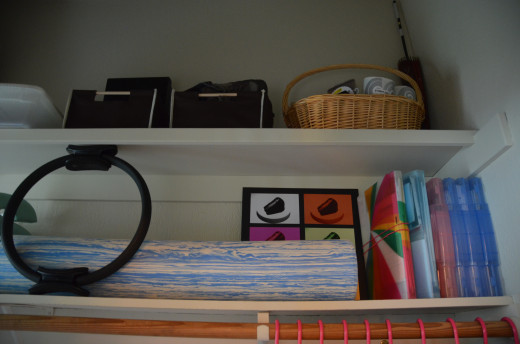
An Organized Life is a Good Life
Skillful organization can make life easier, boost productivity, improve living and working conditions, impress friends and colleagues, and free up time.
Why, then, are so many people disorganized? The answer is simple: organization requires constant vigilance, regular discipline, and no small amount of hard work. Don't let these barriers prevent you from becoming more organized. By adopting some very simple and straightforward practices and policies, you can make astounding progress.
All you have to do is…
- Have a place for everything
- Keep an inventory
- Be mindful of what is used most frequently
- Actively rotate out seasonal items
- Make your storage solutions convenient, clear, and attractive
- Establish processes everyone agrees upon
- Make rules about what you buy
- Maximize multitaskers, minimize unitaskers
- Keep items minimal and actively purge
- Take a picture of sentimental objects
Let's have a look at these organizing tips in greater detail.
Simple Organization Tips
Have a Place for Everything
"A place for everything and everything in its place" is the mantra behind many an organized individual, and the phrase is popular for a reason. When possessions are assigned to specific locations, they are less likely to end up where they should not belong- the floor, for instance, or a junk drawer.
One of the easiest ways to make your life more organized is to decide where it would make most sense to keep certain things- both to make it easy to find them, and to make it easy to properly store them when they are not in use.
Having a place for something does not mean you must go out of your way to put it away. If you tend to throw a coat on a couch every time you return home, for example, consider making a place for coats in that neglected broom closet in your front hallway, install some hooks next to your front door, or invest in a fetching coat hanger that stands right next to your home's entranceway.
Sample Inventory
Item
| Value
| Category
|
|---|---|---|
Old riding boots
| 100
| Clothes
|
New riding boots
| 120
| Clothes
|
Black heels
| 100
| Clothes
|
Dresses (approx)
| 1500
| Clothes
|
Pans
| 200
| Kitchen
|
Kitchenaid mixer
| 325
| Kitchen
|
Food processor
| 30
| Kitchen
|
Microwave
| 50
| Kitchen
|
Stemware
| 50
| Kitchen
|
Kitchenaid attachments
| 125
| Kitchen
|
Cheese dome + cake pans
| 55
| Kitchen
|
Tea pot and french press
| 50
| Kitchen
|
Cuisinart bread machine
| 90
| Kitchen
|
Rice cooker
| 120
| Kitchen
|
Butterfly Chair
| 30
| Furniture
|
Table and chairs
| 150
| Furniture
|
Round green chair
| 120
| Furniture
|
Bookshelf
| 150
| Furniture
|
Mattress
| 900
| Furniture
|
Small tables
| 100
| Furniture
|
Lamps
| 120
| Furniture
|
Chandelier
| 217
| Furniture
|
Chaise
| 229
| Furniture
|
Additional details you might include in an inventory include the item's location, and possibly what season it might be associated with (which can help you more systematically rotate out seasonal items)
Keep an Inventory
Not every super organized individual keeps an inventory of all his possessions, but I've found this practice to be incredibly useful. Creating and maintaining an inventory has several perks. Just the practice of creating this inventory forces one to consider all of one's possessions- and perhaps to get rid of some unnecessary things (For example, as you write "Overstuffed giant elephant plushie" on your list, you might realize that this bulky artifact is not exactly a pivotal part of your life).
Having an inventory also makes it easy to know what you have and know how to find it. In many cases, people end up purchasing tools and supplies that they already have, simply because they've forgotten that they own them.
If you have an inventory, especially one that is tagged by category and includes a note on where each item is stored, you will be less likely to overlook useful (but seldom used) tools- and it will be exceedingly easy to find them once they are needed.
What's more, inventories can be incredibly useful for tax and insurance purchases. Say you create a home office and would like to write off your home office supplies as business expenses. It will be much easier to do so if, as you have acquired things, you have added them (and their value) to your inventory.
Furthermore, should your house burn down, it will be much easier to both re-build your life and get reimbursed by your insurance provider if you have a listing of all of your possessions and their value.
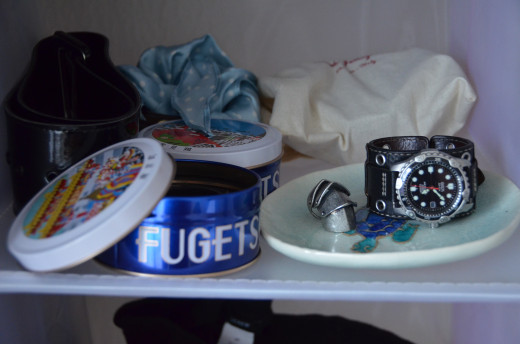
Be mindful of what is used most frequently
While it is important to have a place for everything, it is equally important that everything's place be chosen with frequency of use in mind. Top drawers, easy-to-access closet areas, and other high traffic storage spots should be reserved for those possessions which are most frequently used.
Items that are more seldom used, such as seasonal decorations and clothing, seldom-used tools, keepsakes, and costumes, should be stored in more out-of-reach places, both to keep them from crowding high-traffic spots and to make room for things that see regular action.
Actively rotate out seasonal items
While seasonal objects should be kept out of the way during off months, it pays to be systematic about switching things out as seasons shift. I have frequently made the mistake of keeping all seasonal items in one box or drawer, which leads to a great deal of digging through unnecessary items. By actively cleaning and storing seasonal items once a season has ended, one can avoid a great deal of unnecessary rummaging- and free up some valuable space!
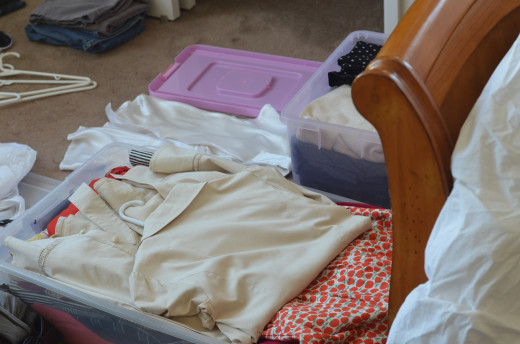
Make your storage solutions convenient, clear, and attractive
We are all far more likely to utilize organization systems if they make us feel good and are easy to work with. By making storage systems- be they drawers, boxes, or bins- convenient, clear, and attractive, you can vastly improve the odds that they will be used as desired- both by yourself and the other people you live with.
Establish processes everyone agrees upon
Being good at organizing isn't going to do you much good if you live in a household full of unorganized slobs. The best way to create a cleaner, more ordered environment is to create and agree upon a system and stick to it.
While it might be tempting (at least as an organized person) to say "These are the rules; follow them." it is better to make the establishment of organization standards a democratic affair. If everyone feels as though they have had their say, they are more likely to stick to the system.
If you find yourself dealing with a particularly resistant housemate who has absolutely no desire to do away with clutter or messes, try to find some compelling reasons why this person would benefit from the shift. For example, you could explain how much more likely a single male roommate is to… impress female lady friends… if he doesn't have a horrendously messy room.
If things become desperate, of course, you might always resort to bribery. Sometimes agreeing to wash all the dishes if so-and-so just keeps her clothes off the floor is worth the slightly unequal tradeoff.
What about you?
Are you careful about what I buy?
Make rules about what you buy
In addition to establishing mutually agreed upon organization standards about that which is already within a household, it is helpful to set some rules around what comes in to the household. After all, one can have a splendidly organized home and still mess things up if one keeps acquiring goods.
Think of it this way- as you first enter a hotel room, everything is neat and pristine. As your stay progresses, of course, you bring in new things- clothes from your suitcase, snacks, souvenirs- and things start to get messy.
Only if you control the influx of goods can you hope to maintain the quality of an organized home.
Items to Avoid

Maximize multitaskers, minimize unitaskers
One of the biggest clutter culprits is the unitasker- a gadget that is only good for one purpose. Good examples of unitaskers are:
- Ice cream makers
- Feather dusters
- That sequined pair of pants that only goes with one shirt you own
- Apple corers
- Stormtrooper uniforms (OK, I'm guilty of this one)
- Christmas cookie cutters
It is better to only acquire multitaskers- tools and objects that can be used for multiple purposes. For example, while Christmas cookie cutters can only be used for holidays, a wine glass can be used as:
- A wine glass
- A biscuit cutter
- A cookie cutter
- A temporary goldfish bowl
- A bell
- An instrument
- A votive holder
- An improvised weapon
A dramatic water-throwing implement
So if you are trying to reduce excess clutter in the kitchen, get rid of your collection of Christmas cookie cutter sets and hold on to your wine glasses. Don't worry; you'll still be able to make lovely Christmas cookies. All you have to do is dust your cookies with holiday-colored sugars or pipe holiday insignias onto them using royal icing.
Get rid of things you don't need!
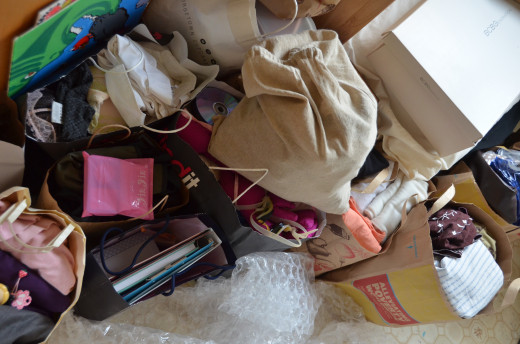
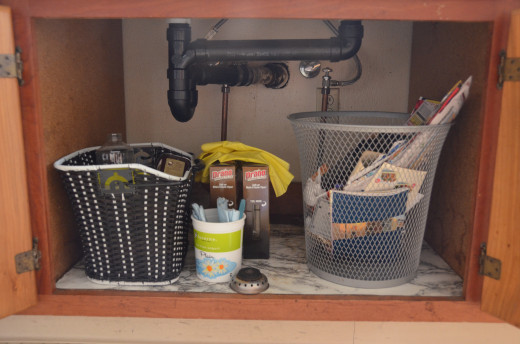
Keep items minimal and actively purge
Being organized involves getting rid of everything you can- not just unitaskers. No matter how organized you might be, no matter how careful you are about purchasing things, you will find yourself accumulating objects that you do not need. To maintain a nicely organized household, you will have to actively get rid of things- not just twice a year, not just twice a month, but every single day.
Make a habit of scrutinizing everything you need and asking yourself: "Do I need this? Do I regularly use this?" If you don't, it goes.
Take a picture of sentimental objects
Sometimes getting rid of things is hard- especially if a particular object has sentimental value. To maintain an organized life while also holding on to precious memories, take photographs of meaningful objects- and then get rid of them.
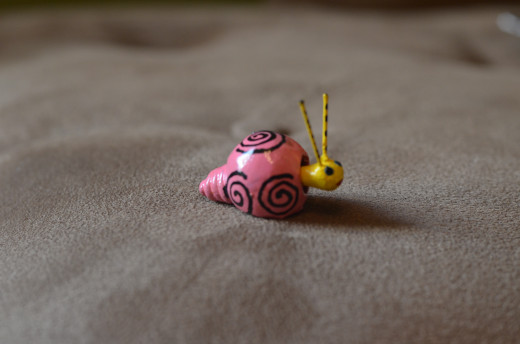
Be honest...
How organized are you?
Happy Organizing!
Even if you adopt one of these practices, you should see a positive impact in your life. By simply rotating out seasonal items, for example, you can make it a lot easier to access and maintain holiday decorations and winter/summer clothes, which will save you money, time, and hassle. By establishing some basic organization ground rules with your housemates, you can improve your living conditions and reduce unnecessary interpersonal stress and resentment. Even by just actively getting rid of things, you will find it is profoundly easier to clean your home- not to mention move.
Together, however, these ten organizing tips can change your life. I encourage you to take on each and every practice to the best of your ability. The positive changes you'll see are well worth the effort and self-discipline it takes to make them.
Once you've given these methods a try (or if you're already an organizing expert), let me know which one has made the biggest difference for you- and share your additional organizing tips in the comments below.


